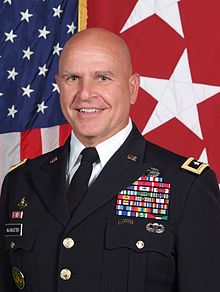Andy Exum, a former Army officer and former U.S. deputy assistant secretary of defense for Middle East policy, offers this assessment:
Let me be as clear as I can be: The president’s selection of H.R. McMaster to be his new national security advisor is unambiguously good news. The United States, and the world, are safer for his decision.
. . .
[H] e earned his Ph.D. in history and wrote a best-selling book, Dereliction of Duty. With great foresight, I neglected to read it until three months ago, so the book remains fresh in my memory today. One thing that stands out in the book is the way in which McMaster criticized the poorly disciplined national security decision-making process in the Kennedy and Johnson administrations, and especially the way in which the Kennedy administration made national-security decisions by a small group of confidants without a robust process to serve the president.
Like Ben Bernanke, a student of the Great Depression brought in to lead the Federal Reserve immediately prior to the Great Recession, McMaster comes to his job having carefully studied and criticized the national-security decision-making process for which he will now be responsible.
I have known McMaster for over a decade and cannot imagine a more decent man in his position today. This job is going to drive him crazy, because he does not suffer fools gladly. Unless he has been given some assurances about both staffing and process, he will struggle in a competition to influence the president—to be the last man in the room when the president makes a key decision.
Read it all here.
General McMaster, by the way, is not just some pointy-headed
intellectual General that policy wonks like because he wrote a great book. His leadership of an armored calvary troop in
the Gulf War at the Battle
of 73 Easting is still studied today.

No comments:
Post a Comment